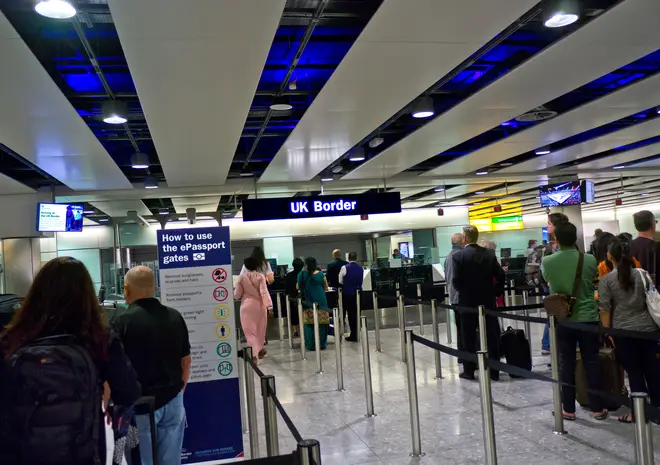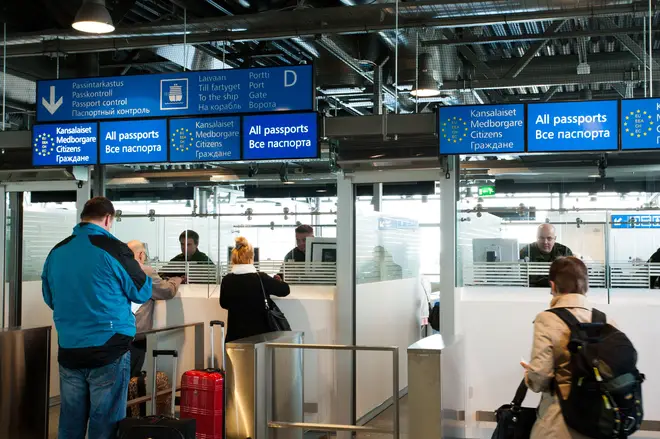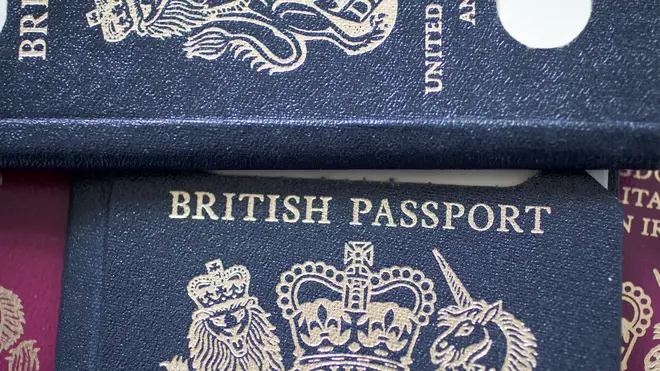
Dean Dunham 9pm - 10pm
19 December 2023, 07:57 | Updated: 19 December 2023, 08:00

The European Union is set to bring in strict new entry requirements for UK travellers next autumn, sparking concerns about potential border delays.
Airline Ryanair has warned that the EU’s much-delayed Entry/Exit System (EES) is not yet fit even for testing.
The airline told the Independent: “It is not yet possible to properly test changes to our systems due to delays in providing test environments and many aspects of the system requirements either have not been specified or are simply not clear to us.
“This makes meeting the requirements very difficult, regardless of the repeated delays in the implementation date.
“Overall, this whole project has been delayed multiple times and has been poorly managed.”
Read more: Brits face new travel rules from 'October 2024' - how will you be affected?
Read more: Driving home for Christmas? When and where the festive getaway delay hotspots are

After the UK voted to leave the European Union and the government negotiated for British travellers to become “third-country nationals subject to a range of restrictions.
Starting from October 6, passengers to the Schengen area will need to register fingerprints and have their pictures taken under the new entry/exit system.
The Schengen area comprises most of the 27 remaining members of the European Union (but not Bulgaria, Cyprus, Ireland or Romania), plus Iceland, Norway, Switzerland and Liechtenstein.
Delays are expected at the Channel Tunnel, where processing times for cars at the French border may increase from less than one minute to five to seven minutes.
The EES, was initially scheduled for May but the project faced delays due to IT issues and lobbying efforts to avoid coinciding with the Summer Olympics.

France is understood to have asked that the introduction of EES be postponed until after the 2024 Paris Olympics in July and August to avoid possible delays at a time of maximum pressure on facilities.
Non-EU passport holders will be affected, which means Brits travelling to Europe will need to submit fingerprints and facial biometrics on their first visit after October 6 and another verification on each entry.
According to Eurotunnel, which runs the car-carrying LeShuttle operation between Folkestone and Calais, an introduction date of 6 October 2024 has now been set.
Getlink, the Channel Tunnel operator, is investing £67 million in new facilities in Kent, capable of processing 500 cars an hour.
Concerns extend to the Port of Dover, the UK's busiest port, where limited space may exacerbate delays.
The EES aims to enhance border security against terrorist threats, replacing traditional passport stamping with an automated IT system. Passengers flying from the UK to the EU will undergo biometric registration, though potential delays have been cautioned by airlines.
For EU arrivals in the UK, entry procedures remain unchanged.
However, by 2025, EU passport holders will need the UK's electronic travel authorisation (ETA) before departure.
Additionally, a new visa-waiver scheme, similar to the American Esta, will require online applications and cost €7 for a three-year validity or until passport expiration.
Travellers are advised to apply at least 96 hours before departure to allow processing time.

Christian Wigand, a European Commission spokesman, said member states were working “to ensure that everything will be ready for the successful launch of the EES”.